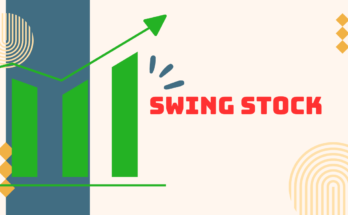How to Buy an Index:
Do you want to invest in the stock market, but don’t know which stocks to choose? Do you want to buy a bunch of stocks at once, instead of buying them one by one? If yes, then you might want to buy an index.
An index is like a basket of stocks that belong to a certain category. For example, there is an IT index, a Bank index, and so on. Each index has different stocks in it, and each stock has a different weight. The weight means how much of the index is made up of that stock.
You can find out the weights of different indexes by searching on Google. For example, you can search for “Bank Index weight in India” and you will get the weights.
Mutual funds and ETFs: what are they?
Funds that invest in an assortment of stocks include mutual funds and exchange-traded funds (ETFs). While they are similar, they are not exactly the same.
Exchange-traded fund is the full form of ETF.
A mutual fund is a type of fund that may be purchased and sold via an app, such as COIN BY ZERODHA. For additional information about eTFs, read this blog about etf. A fund manager makes decisions on which stocks to acquire and sell. An example of a mutual fund that invests in IT stocks is the ICICI Prudential Nifty IT
Which One is Better: ETF or Mutual Fund?
The choice between ETFs and mutual funds has generated considerable debate, with proponents of both sides arguing for the superiority of their preferred investment vehicle. However, the reality is that there is no one-size-fits-all answer, and each option has its own advantages and disadvantages. Let’s analyze key aspects that will help you make informed decisions tailored to your financial goals, preferences, and financial capabilities.
Exchange Traded Fund (ETF)
advantage:
1. Cost Efficiency: ETFs typically have lower fees compared to mutual funds, which can lead to long-term sustainable cost savings.
2. Transparency: ETF transparency is a particular strength. Trading on an exchange allows investors to monitor performance in real-time and provides clear insights from holdings published daily.
3. Flexibility: You can buy and sell his ETFs at market prices during market hours, giving you some trading flexibility.
Cons:
1. Passive Management: ETFs are often passively managed and track an index. This passive approach can limit your potential to outperform the market.
2. Complexity: The process of buying and selling ETFs on the stock market can seem complicated to beginners and introduces an additional element of complexity.
Investment trust:
advantage:
1. Convenience: Mutual funds offer a convenient and hassle-free approach. Professional fund managers take on the complex task of selecting individual stocks, relieving investors of this responsibility. 2. **Diversification:** Instant diversification is a characteristic of mutual funds that hold a variety of stocks and securities to spread risk.
3. Stability: Professional mutual fund management aims to achieve long-term stability and consistent returns.
Cons:
1. Fees: Mutual funds often have high fees, such as sales commissions and commissions, which can affect your overall returns.
2. Trading Restrictions: Unlike ETFs, mutual funds can only be bought and sold at their net asset value (NAV) at the end of the trading day, which limits intraday trading flexibility.
Choose the right fit:
Considerations:
1. Goals: Clearly define your investment goals and time horizon. ETFs may be better suited for short-term strategies, while mutual funds may be better suited for long-term goals.
2. Participation Preference: Rate how comfortable you are with participating in investment decisions. ETFs require a more hands-on approach, while mutual funds offer a more hands-on strategy.
3. Evaluate your budget: Evaluate your budget and consider the impact of handling fees on returns. If cost efficiency is your top priority, ETFs may be a more attractive option. In summary, the best choice depends on your individual situation.
ETFs and mutual funds are both effective ways to grow your wealth, so the key is to base your choice on your specific financial goals and personal tendencies.
Disclaimer: The financial and stock market information provided on Blogbia is intended for informational purposes only and should not be construed as investment advice. It is highly recommended that you conduct your own research and seek guidance from financial experts before making any investment decisions. The decision to continue reading the content on this website is entirely at your own discretion, and it shall be understood as an express acknowledgment and agreement that Blogbia shall be released from any potential legal action or enforceable claims that may arise.



